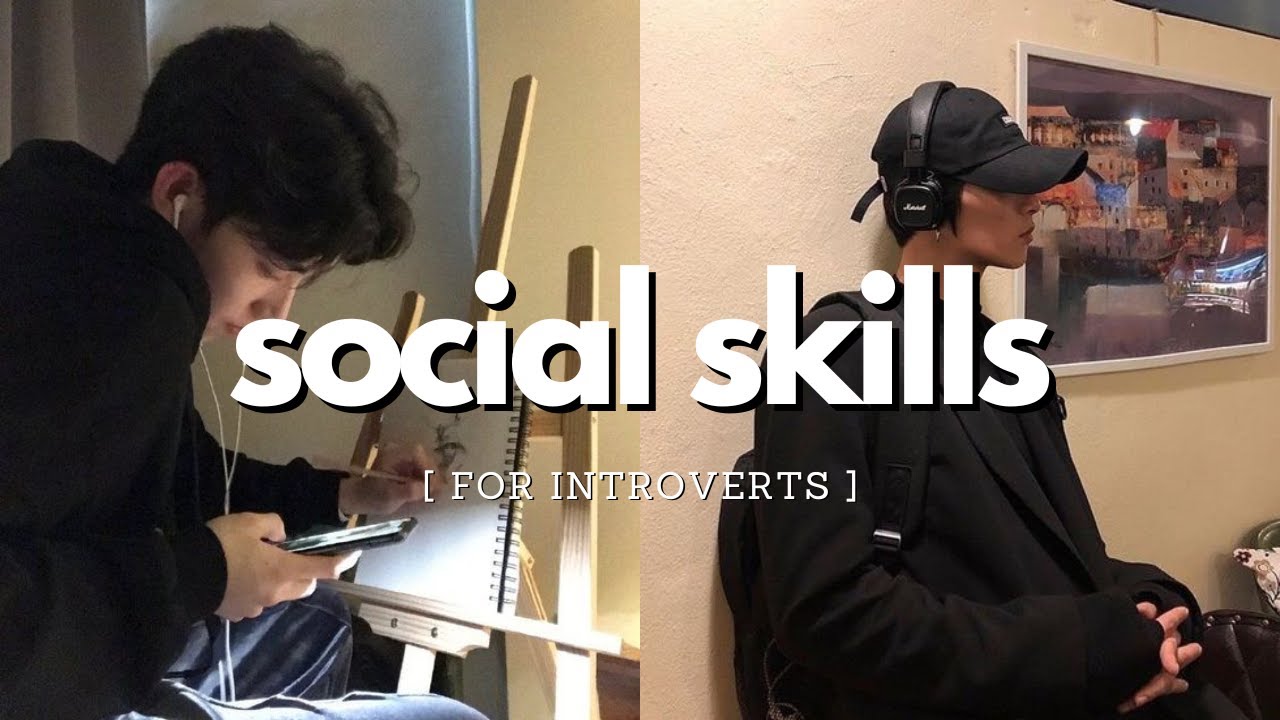Being an introvert in a world that often celebrates extroversion can be a challenging experience. Introverts may find themselves feeling overwhelmed in social situations and may struggle with self-confidence. However, there are numerous strategies that can help improve social skills and build confidence. In this article, we will explore 10 effective ways for introverts to enhance their social abilities and feel more at ease in social environments.
1. Understand Your Introversion
Before embarking on a journey to improve social skills, it’s essential to understand what introversion means. Introverts often prefer solitary activities and may feel drained after social interactions. Recognizing that this is a natural personality trait can help in setting realistic goals for social improvement.
Know Your Triggers
Identify situations that cause discomfort. For example:
- Large gatherings
- Networking events
- Public speaking
Understanding these triggers allows you to prepare mentally and emotionally for social interactions.
2. Set Small, Achievable Goals
When learning how to improve social skills as an introvert, it’s vital to set small, achievable goals. Instead of aiming to become the life of the party, start with manageable objectives.
Examples of Small Goals
- Initiate a conversation with a coworker.
- Attend a social event for a short duration.
- Practice active listening in conversations.
These goals can gradually build your confidence and help you expand your comfort zone.
3. Practice Active Listening
One of the most effective ways to engage in social situations is through active listening. This skill not only makes conversations more enjoyable but also allows you to contribute meaningfully.
Tips for Active Listening
- Maintain eye contact to show engagement.
- Nod occasionally to acknowledge the speaker.
- Summarize what the speaker has said to show understanding.
By focusing on the other person, you can alleviate some of the pressure on yourself and enhance your conversational skills.
4. Join Clubs or Groups
Joining clubs or groups that align with your interests is an excellent way to practice social skills in a comfortable environment. Being part of a community provides a natural setting for interactions.
Types of Groups to Consider
- Book clubs
- Sports teams
- Hobby classes (e.g., painting, cooking)
These environments often foster camaraderie, making it easier to connect with others who share similar passions.
5. Use Online Platforms
In today’s digital age, online platforms can be an excellent way for introverts to practice their social skills. Engaging in online discussions can serve as a stepping stone to face-to-face interactions.
Benefits of Online Interaction
- Lower pressure than in-person meetings.
- Ability to choose when to engage.
- Opportunity to practice writing and expression.
Start with forums, social media groups, or even online gaming communities to connect with others.
6. Role-Playing Scenarios
Role-playing can be a useful tool for introverts looking to enhance their social skills. By simulating various social scenarios, you can prepare for real-life interactions.
How to Implement Role-Playing
- Practice with a friend or family member.
- Use common scenarios, like meeting new people or giving a presentation.
- Record yourself to identify areas for improvement.
This method can help you feel more prepared and confident in actual social situations.
7. Focus on Body Language
Understanding and improving your body language can significantly enhance your social interactions. Non-verbal communication often speaks louder than words.
Key Body Language Tips
- Maintain an open posture (avoid crossing arms).
- Smile to appear approachable.
- Use gestures to emphasize points.
By being aware of your body language, you can project confidence and warmth, making it easier for others to engage with you.
8. Attend Workshops or Classes
Consider attending workshops or classes focused on communication skills. These sessions can provide valuable insights and techniques for improving social interactions.
Types of Workshops to Explore
- Public speaking courses
- Assertiveness training
- Improvisation classes
Such programs often offer a supportive environment where you can practice without fear of judgment.
9. Embrace Mindfulness Techniques
Practicing mindfulness can help reduce anxiety and improve your overall social experience. Being present in the moment allows you to engage more fully in conversations.
Mindfulness Practices to Try
- Meditation to clear your mind.
- Deep breathing exercises to calm nerves.
- Journaling to reflect on social experiences.
By incorporating mindfulness into your routine, you can build resilience and enhance your social interactions.
10. Celebrate Small Wins
As you work on improving your social skills, it’s important to celebrate small wins. Acknowledging your progress, no matter how minor, can boost your motivation and confidence.
Ways to Celebrate
- Keep a journal of your achievements.
- Treat yourself after reaching a social goal.
- Share your successes with supportive friends or family.
Recognizing your efforts fosters a positive mindset and encourages continued growth.
Conclusion
Improving social skills as an introvert is a journey that requires patience and practice. By implementing these 10 effective strategies, you can build confidence and enhance your interactions with others. Remember, it’s perfectly okay to take small steps and gradually expand your comfort zone. The key is to be kind to yourself and acknowledge your progress along the way. With time, dedication, and the right tools, you can thrive in social situations and build meaningful connections.



